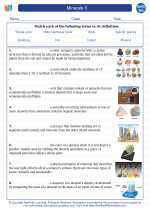Minerals II -> sea
The Sea
The sea is a vast body of saltwater that covers about 71% of the Earth's surface. It plays a crucial role in regulating the planet's climate, providing a habitat for a wide variety of marine life, and serving as a source of food, energy, and transportation for humans.
Characteristics of the Sea
The sea is characterized by its saltiness, which is due to the presence of dissolved salts such as sodium chloride. It is also influenced by factors such as temperature, salinity, and depth, which vary from one part of the sea to another.
Formation of the Sea
The sea was formed over millions of years through processes such as tectonic activity, volcanic eruptions, and erosion. It is continually shaped by the movement of tectonic plates, the flow of ocean currents, and the impact of human activities.
Ecological Importance
The sea supports a diverse array of ecosystems, including coral reefs, kelp forests, and deep-sea trenches. It is home to countless species of fish, mammals, invertebrates, and plants, many of which are still being discovered and studied by scientists.
Human Interaction
Humans have relied on the sea for food, trade, and recreation for thousands of years. Today, it continues to be a vital source of seafood, minerals, and energy resources, as well as a major transportation route for global commerce.
Study Guide
Key Concepts
- Definition and characteristics of the sea
- Formation and geological processes shaping the sea
- Ecological importance of the sea
- Human interaction with the sea
Study Tips
- Review the key features of the sea, including its salinity, temperature, and depth variations
- Explore the geological processes that have contributed to the formation of the sea
- Learn about the diverse ecosystems and marine life found in different regions of the sea
- Examine the ways in which humans have utilized and impacted the sea throughout history
[Sea] Related Worksheets and Study Guides:
.◂Earth Science Worksheets and Study Guides High School. Minerals II
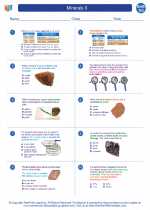
 Worksheet/Answer key
Worksheet/Answer key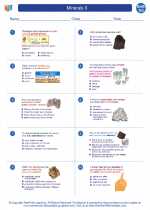
 Worksheet/Answer key
Worksheet/Answer key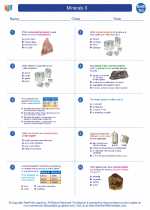
 Worksheet/Answer key
Worksheet/Answer key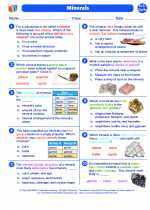
 Vocabulary/Answer key
Vocabulary/Answer key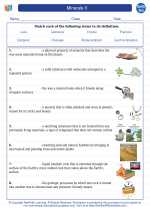
 Vocabulary/Answer key
Vocabulary/Answer key